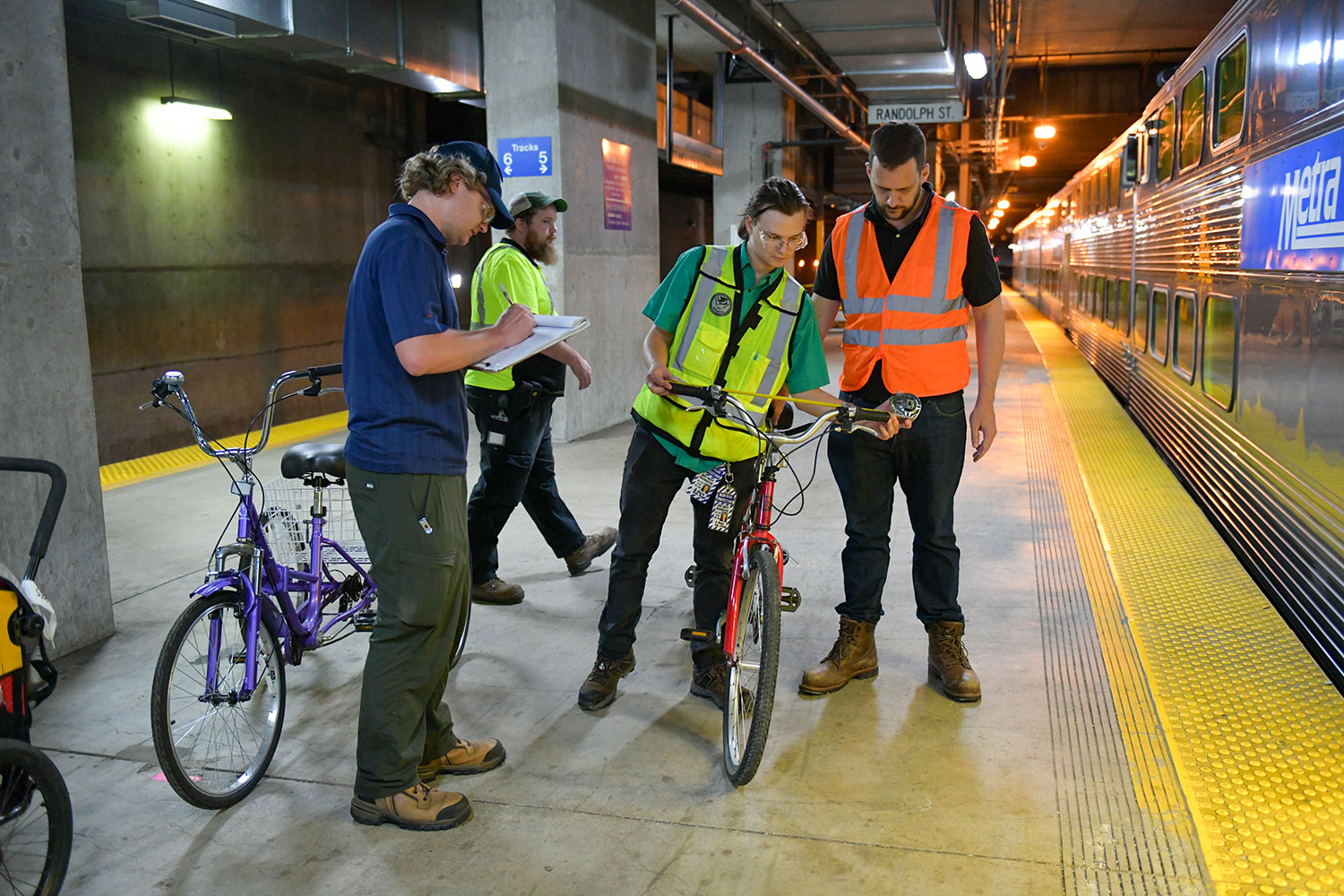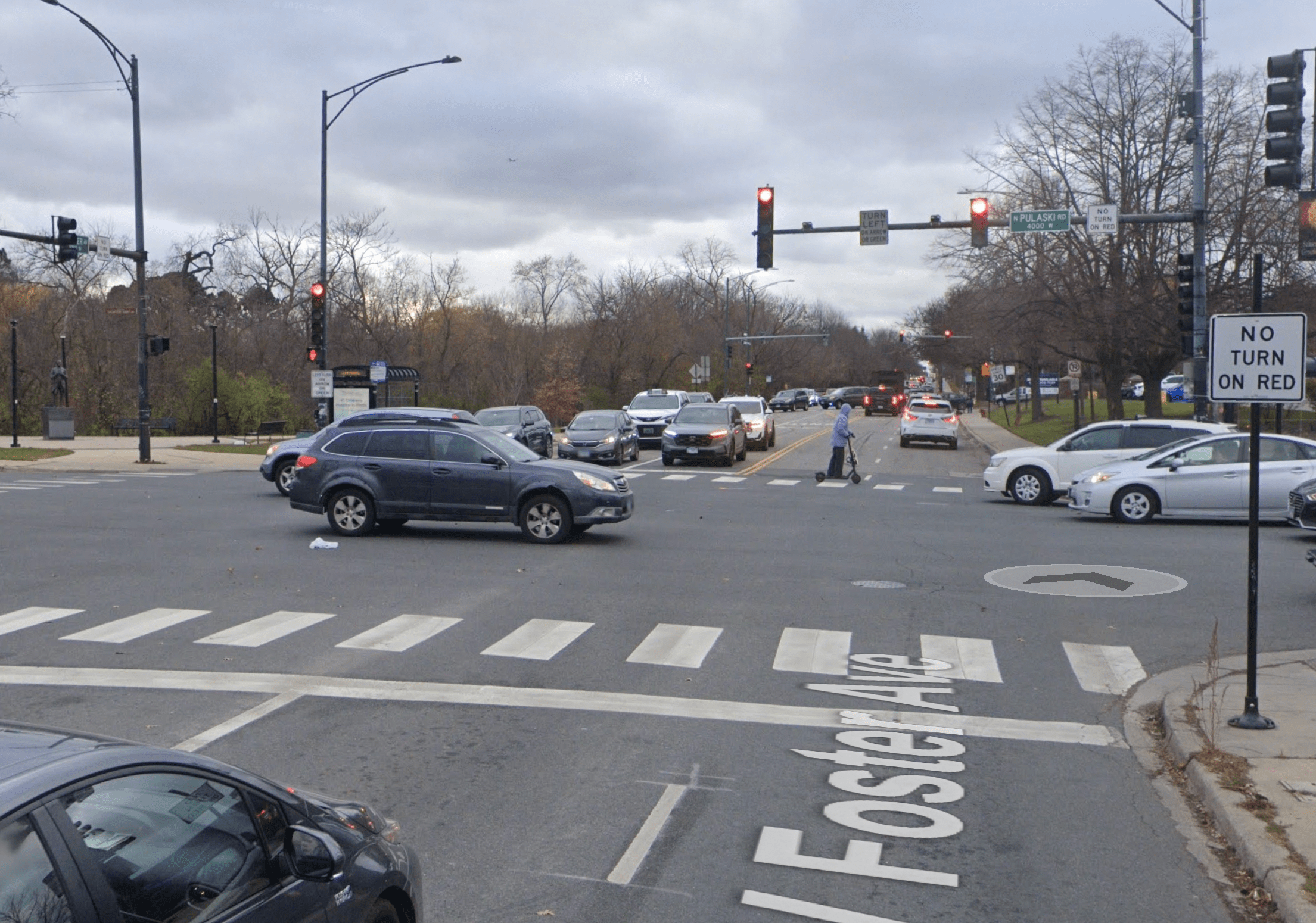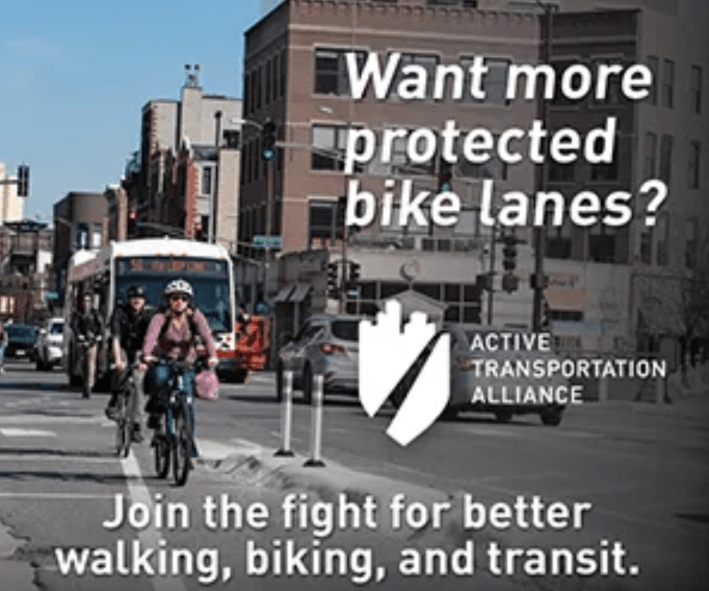
Metra revealed some of its plans to accommodate more bikes on more trains in a first-of-its-kind presentation and Q&A on Monday night. (The video recording is embedded below.)
The meeting occurred due, at least in part, to consistent appearances and comments at Metra board meetings by a handful of riders who have spoken up about being blocked from boarding with their bikes, inconsistent application of Metra's bikes on trains policy, and other irritations.
In response to these comments and appearances — particularly from Michael Metz and Commuters Take Action — Metra created the Community Bike Working Group, and solicited people to join it in the last week of October, as a way to address the board's direction.

At the start of the meeting, Aaron Maertins, Metra's director of operations and project management, acknowledged the recent instances where people on bicycles have been denied entry on trains, pledging that the staff was working to make it better.
"We are bike riders ourselves and we absolutely empathize with some of the difficulties bike riders have had using the Metra system," Maertins said. "I know some of the folks on the call have recently had the experience of being denied boarding on Metra trains."
Maertins then presented a series of images that showed the current and planned future state of bicycle accommodations on trains. Maertins stated that the goal is to allow bicycles on all trains at all times via "the most permissive policy possible," and noted that it's likely possible on all but about 4.5 percent of weekday trains.
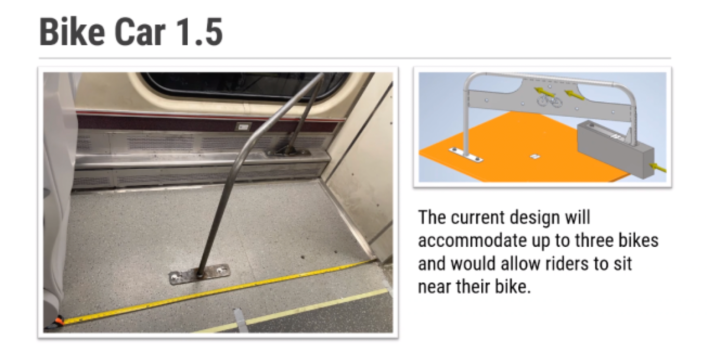
Part of achieving that goal is having a consistent policy. At one of the board meetings, a commenter advised Metra that there are at least three variations of the policy: on the website, on printed materials, and conductors' practices.
During Monday's meeting, Metra staff addressed the concern, indicating that the organization intended "to resolve the discrepancy between printed schedules and online information when schedules are reprinted in February."
As Metra continues to iterate bike accommodations on regular cars, the staffers described a few of the different bicycle sizes and styles that people own and bring onto the trains that don't easily fit in.
Special shout out to @WorkingBikes for loaning our team some non-standard bikes to test loading and unloading with onboard! These tests allowed us to determine maximum measurements for specialty bikes and how they may best be loaded and unloaded on our trains. pic.twitter.com/6ZCfwXwSJ3
— Metra (@Metra) October 10, 2023
In order to fulfill the promise of a permissive bike policy, last month Working Bikes Cooperative loaned to Metra some specialty bikes that don't fit within the current bikes on trains standards, which allow bicycles up to 70 inches in length.
Metra staff are currently working on a bike rack design they can build in-house that would be deployed on the highest-ridership trains, in a dedicated area distinct from the priority seating area where bicycles are allowed to be stored when not used for priority reasons. They called this "bike car 1.5."
A future iteration called bike car 2.0, the staffers on the virtual meeting laid out, would be a totally new design that Metra is currently soliciting from bike rack designers and manufacturers.
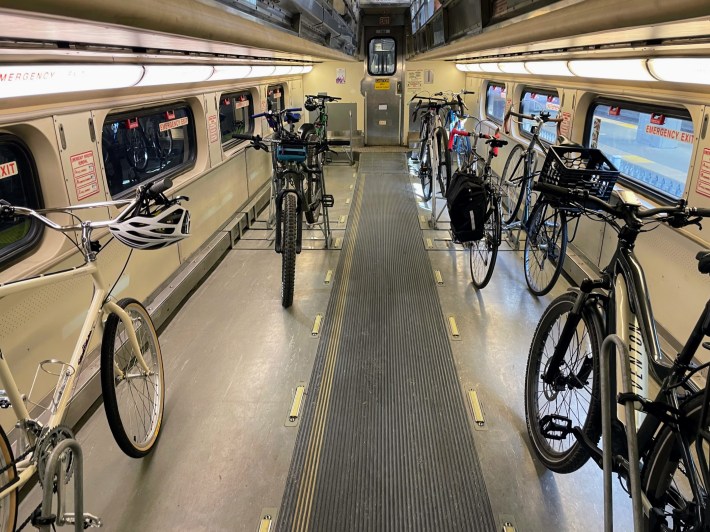
But for cyclists who end up taking trains without a dedicated bike area that has built-in bike racks, Maertins hinted during the question and answer period of the presentation that Metra has already looked into procuring blue Metra-branded bungee cords that would be handed out to riders at outreach events and provided to conductors to give to riders on trains.
The meeting was held on the three-year anniversary of Metra introducing bike cars, where significant portions of older train cars were repurposed for holding dozens of bicycles (like in the photo above). While these have been have been wonderful in making it much less stressful to travel on Metra with a bicycle, they are not always properly scheduled; the bike car sometimes comes when it's not scheduled and sometimes isn't part of a train when the schedule says it would.
Watch the complete presentation and answer the three questions in Metra's follow up survey.

Did you appreciate this post? Please consider making a tax-deductible donation.
